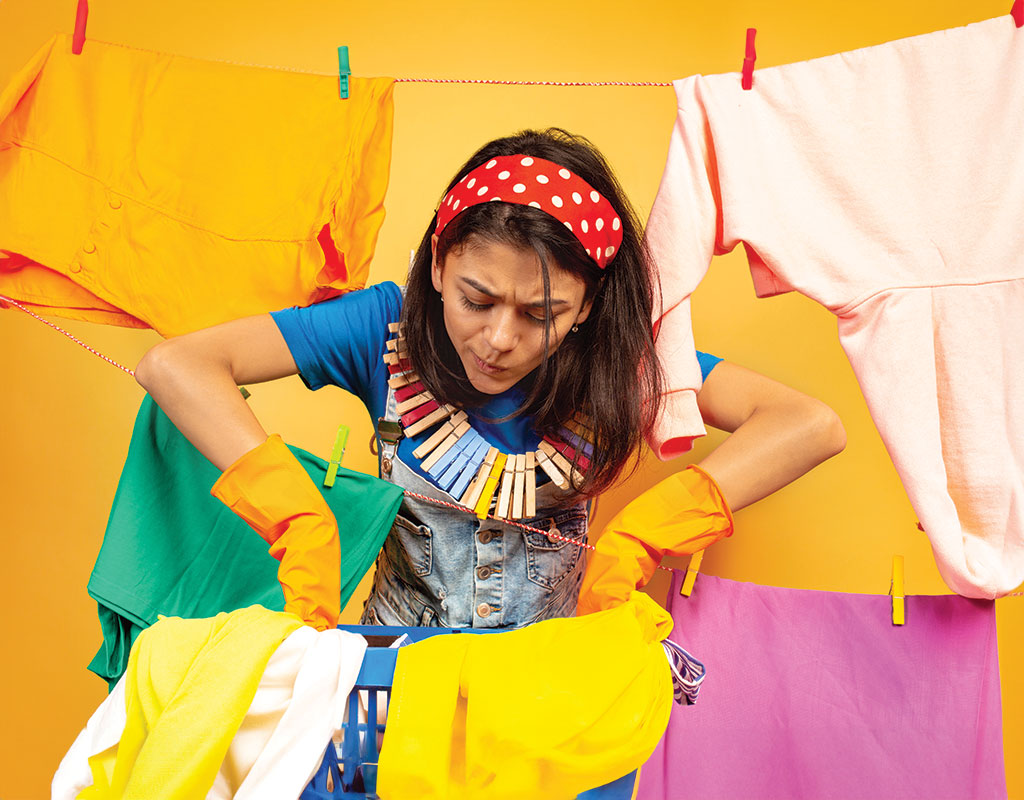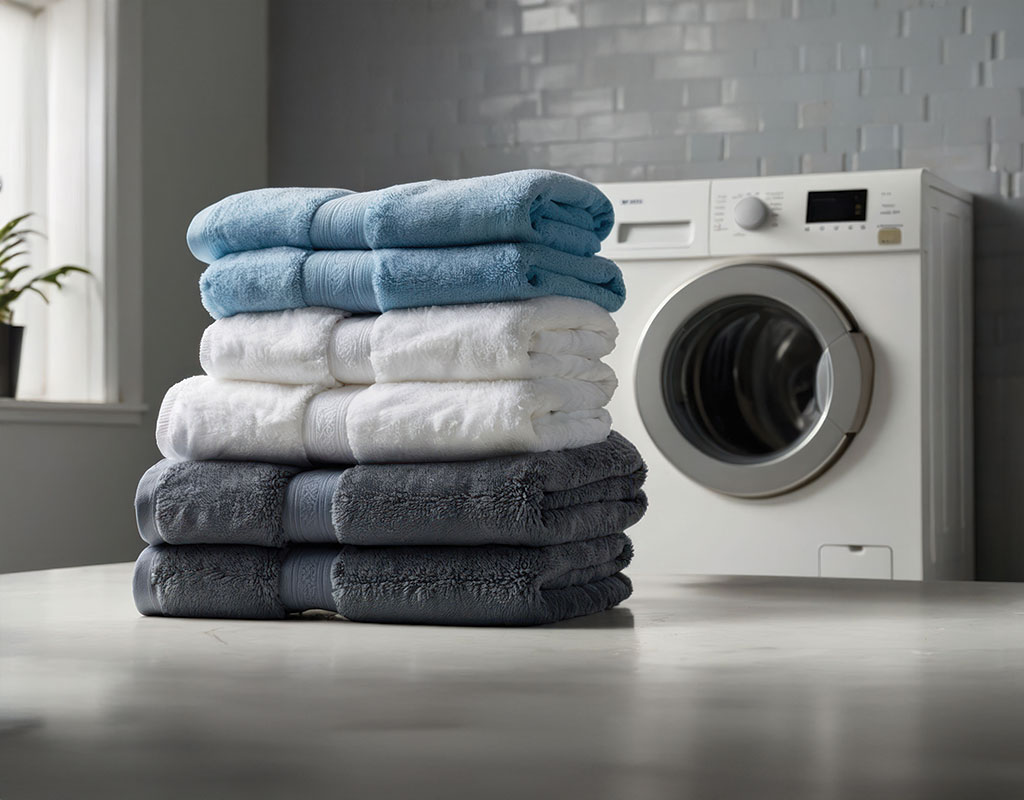When it comes to cleaning our clothes, many of us often find ourselves in a dilemma: should we wash them at home or opt for dry cleaning services? This decision can be particularly confusing, especially when considering the different types of fabrics, the nature of stains, and the potential costs involved. In this blog, we will explore the key differences between dry cleaning and laundry, helping you make informed choices for your wardrobe. Whether you’re a busy professional, a student managing your budget, or someone who simply wants to keep their clothes looking pristine, understanding these differences is essential. Plus, we’ll introduce you to FABO, India’s top laundry and dry cleaning service, which offers a convenient solution tailored to your needs.
Understanding the Basics: Dry Cleaning vs. Washing
To start with, let’s break down what each process entails.
Dry Cleaning
Dry cleaning is a specialized cleaning method that uses chemical solvents instead of water to clean fabrics. This process is particularly beneficial for delicate fabrics that may be damaged by water or traditional washing methods. The term “dry cleaning” can be misleading; while no water is used in the process, it does involve the use of solvents like perchloroethylene or hydrocarbons.
Key Features of Dry Cleaning:
- Gentle on Fabrics: Ideal for delicate materials such as silk, wool, and cashmere that can shrink or lose their shape when exposed to water.
- Effective Stain Removal: Particularly adept at removing oil-based stains and tough marks that regular washing may not eliminate.
- Preserves Quality: Helps maintain the color and texture of garments over time, reducing the risk of fading or distortion.
Laundry
Laundry, on the other hand, involves washing clothes in water with detergents. This method is suitable for everyday fabrics like cotton and polyester, which can withstand agitation and moisture without damage.
Key Features of Laundry:
- Water-Based Cleaning: Utilizes water along with detergents to remove dirt and stains.
- Cost-Effective: Generally cheaper than dry cleaning due to lower operational costs.
- Suitable for Everyday Wear: Perfect for items that are frequently worn and can handle regular washing without losing quality.
When to Choose Dry Cleaning
Understanding when to opt for dry cleaning is crucial for maintaining your garments’ longevity. Here are some scenarios where dry cleaning is the preferred choice:
- Delicate Fabrics: If your clothing is made from silk, lace, or other delicate materials that cannot handle water without damage.
- Complex Stains: For tough stains like grease, ink, or certain food stains that require specialized treatment.
- Expensive Garments: High-value items such as suits or designer dresses often come with “dry clean only” labels for a reason; they need extra care to maintain their appearance.
- Preservation Needs: If you have garments that you want to keep in pristine condition for special occasions or long-term storage.
FABO’s dry cleaning services ensure that your delicate fabrics receive the expert care they deserve while using organic solvents that are gentle on both your clothes and the environment.
When to Opt for Laundry
While dry cleaning has its advantages, there are plenty of situations where laundry is the better option:
- Everyday Fabrics: Items made from cotton, linen, or polyester are typically safe to wash at home.
- Regular Wear Items: Clothes like t-shirts, jeans, and casual wear can usually withstand frequent washing without losing their shape or color.
- Budget-Friendly Choices: If you’re looking to save money on routine garment care, laundry services are generally more affordable than dry cleaning.
- Light Stains: For minor stains caused by sweat or food spills, a standard wash can often do the trick without needing special treatment.
FABO offers competitive laundry rates starting at just Rs.120/kg, making it an economical choice for your everyday clothing needs.
The Process: How Each Method Works
Dry Cleaning Process
- Inspection: Garments are carefully inspected for stains and damage.
- Stain Treatment: Specific stains are treated with appropriate chemicals before the main cleaning process.
- Cleaning: Clothes are placed in a dry cleaning machine where solvents clean them without using water.
- Drying: After cleaning, garments are dried using specialized machines that remove any remaining solvent.
- Finishing Touches: Finally, clothes are pressed or steamed to ensure they look sharp before being returned to you.
Laundry Process
- Sorting: Clothes are sorted by color and fabric type to prevent color bleeding.
- Washing: Garments are washed in a machine with water and detergent based on their care labels.
- Rinsing & Spinning: After washing, clothes go through rinsing cycles followed by spinning to remove excess water.
- Drying: Clothes can be air-dried or dried in a machine depending on fabric suitability.
- Folding/Pressing: Finally, items are folded or pressed before being returned.
At FABO, both processes are handled by trained professionals who ensure that your garments receive the best possible care tailored to their specific needs.
Cost Considerations: Dry Cleaning vs Laundry
When deciding between dry cleaning and laundry, cost is often a significant factor:
- Dry Cleaning Costs: Typically higher due to specialized equipment and solvents used in the process. Prices vary based on fabric type and garment complexity but generally range from Rs.300 upwards per item at most establishments.
- Laundry Costs: More affordable as it primarily involves water and detergent costs. FABO offers laundry services starting at Rs.120/kg with promotional discounts like 20% off on first bookings.
Choosing FABO means you get high-quality service without breaking the bank—perfect for both occasional needs and regular maintenance.
Environmental Impact
Another important consideration is the environmental impact of each method:
- Dry Cleaning: Traditional dry cleaning methods use chemical solvents that can be harmful to the environment if not disposed of properly. However, many modern dry cleaners (including FABO) have adopted eco-friendly practices using biodegradable solvents that minimize environmental harm.
- Laundry: While laundering uses less harmful substances (water and detergents), it can still have an environmental footprint due to water usage and energy consumption during washing and drying processes.
Choosing FABO ensures that your clothes are cleaned responsibly with environmentally-friendly practices in place.
The Final Decision: Factors to Consider
When faced with the choice between dry cleaning and laundry services, consider these factors:
- Fabric Type: Always check care labels; if it says “dry clean only,” don’t risk it!
- Stain Type: For tough stains like grease or ink—dry clean; for light stains—laundry may suffice.
- Cost vs Frequency: Weigh your budget against how often you need items cleaned; routine items may benefit from laundry services while special pieces should be dry cleaned.
- Time Constraints: If you’re short on time or overwhelmed by laundry duties, consider using FABO’s convenient app for quick booking with free home pickup and delivery.
FABO’s extensive range of services ensures that whether you choose laundry or dry cleaning, your garments will be treated with utmost care by trained professionals who value quality just as much as you do.
Navigating between washing and dry cleaning doesn’t have to be a daunting task anymore! By understanding the differences between these two methods—along with their respective advantages—you can make informed decisions about how best to care for your wardrobe.
Whether you’re looking for routine laundry services or specialized dry cleaning for delicate items, FABO stands ready to assist you with quality service tailored to your needs—complete with free home pickup and delivery through our user-friendly app! So next time you find yourself confused about how to clean your favorite garment, remember that help is just a click away!






